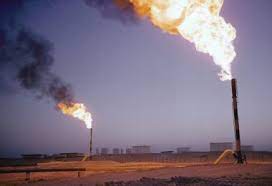A prominent strategist at the Royal Bank of Canada said on Monday that investors should pay close attention to natural gas as prices set new highs and Moscow continues its policy of “mutually assured destruction” with Europe.
According to Helima Croft, head of global commodities strategy at RBC, “nat gas is the most significant story to be following right now in this market.” “Look what is happening, we just keep shattering past highs,” the speaker said.
Dutch TTF natural gas futures reached a record of 291 euros the day before due to concerns over Gazprom’s suspension of Nord Stream 1 gas shipments to Germany. On Tuesday, they were up nearly 13%, trading at 276 euros, or around $274, per megawatt-hour.
Because to Moscow’s flow reductions, European natural gas prices have increased as the region’s energy situation has worsened. Countries are rushing to reduce usage and stock up for the upcoming winter.
Gazprom has already reduced its gas delivery to Europe through the pipeline to 20% of capacity before the Nord Stream 1 news broke.
We must fully anticipate that Russia is pursuing a plan of “mutually assured annihilation” with Europe, according to Croft. “We are going to make this really horrible for you if you continue to support Ukraine and put these sanctions on us on December 5.”
European leaders have charged Moscow with turning its energy exports into weapons in retaliation for sanctions the West imposed after Russia invaded Ukraine. On December 5, the European Union will impose a restriction on the purchase of Russian crude oil by sea, which accounts for the great majority of the supply.
The energy problem in the region has been dubbed “dangerous” by one analyst. The fact that Germany’s top utility had to restart a shut-down coal-fired power plant to ensure its energy supply is an indication of how limited the European gas supply is.
“Europe is facing an economic nightmare right now,” Croft said on Monday. “And the question is — look at where natural-gas prices are. Look at what’s going to happen in terms of industrial shut-ins and rationing. Is Europe going to go forward with these sanctions? That, to me, is the wild card.”








